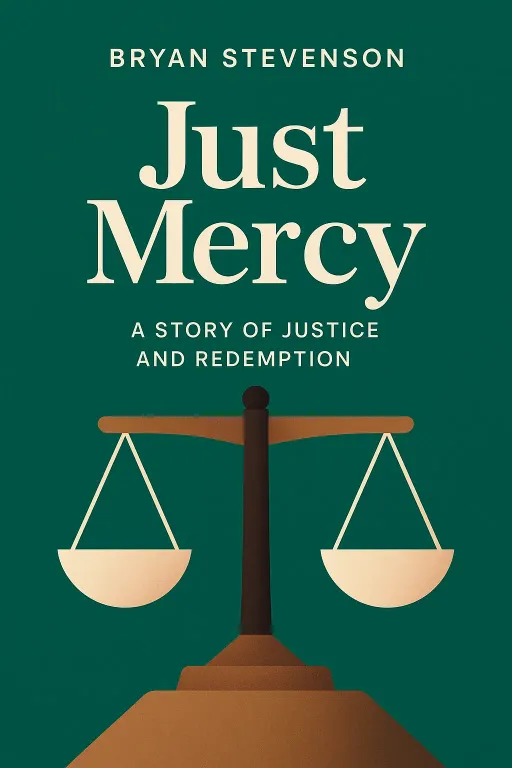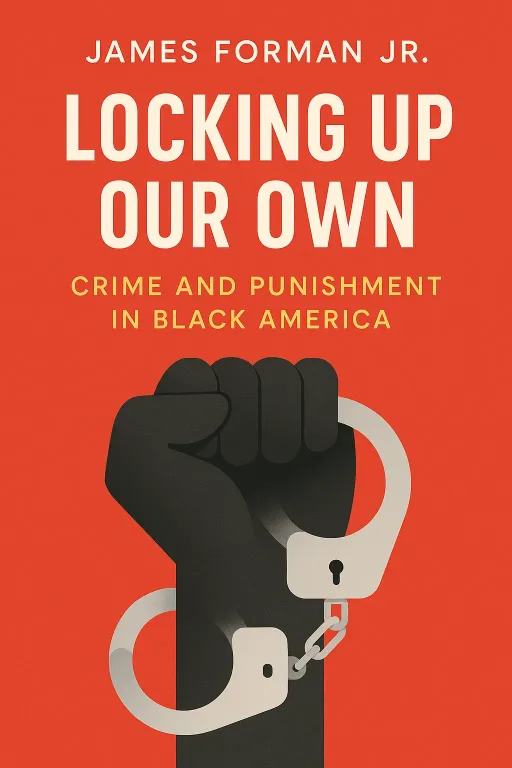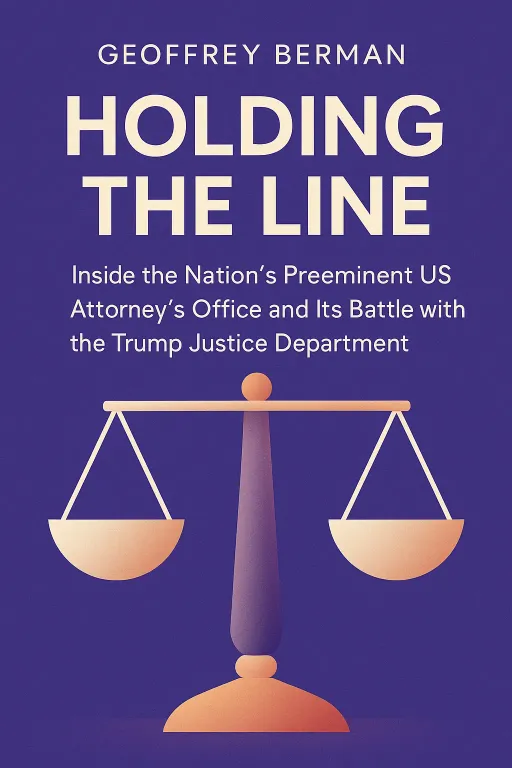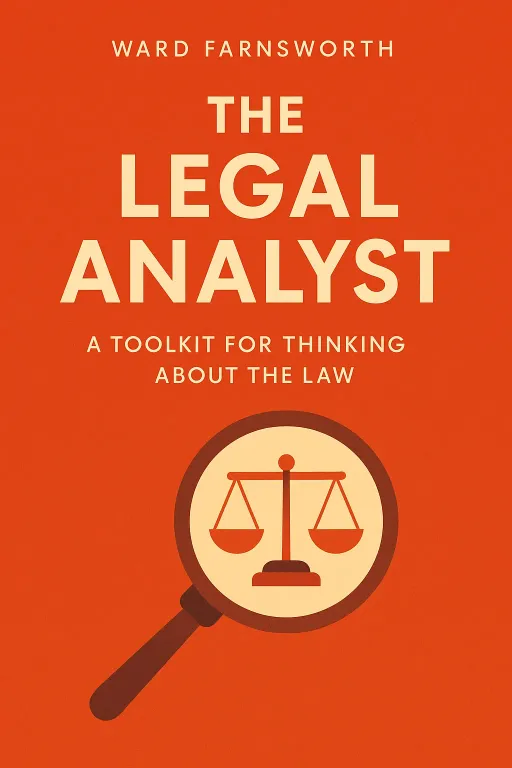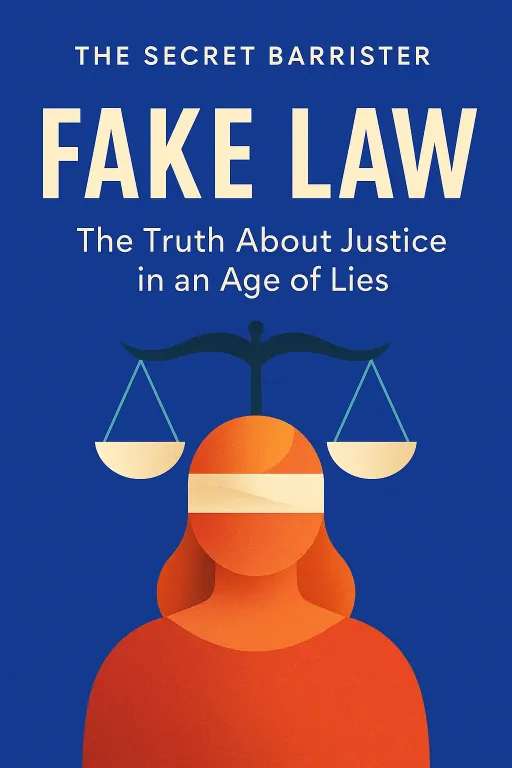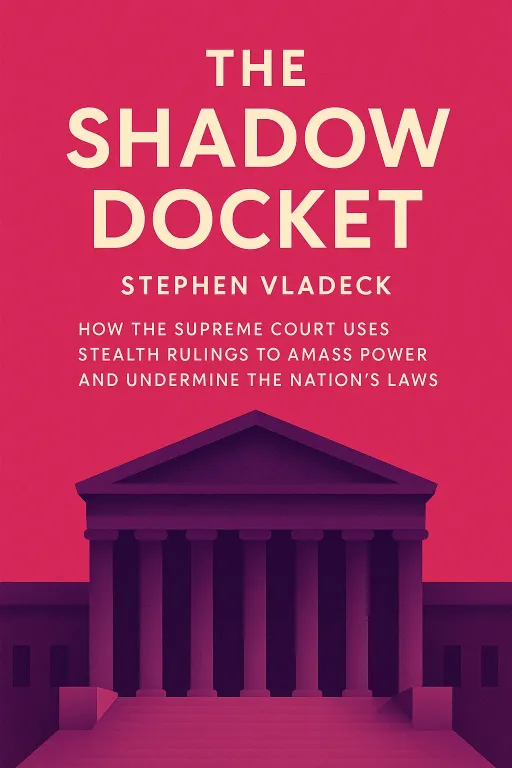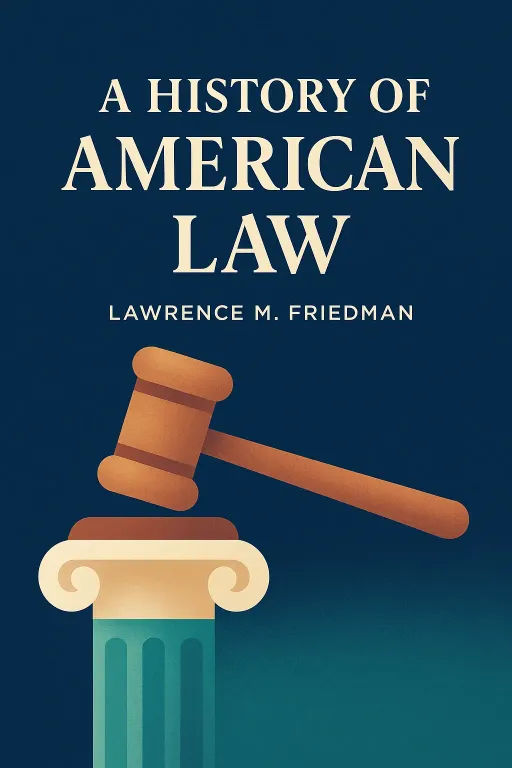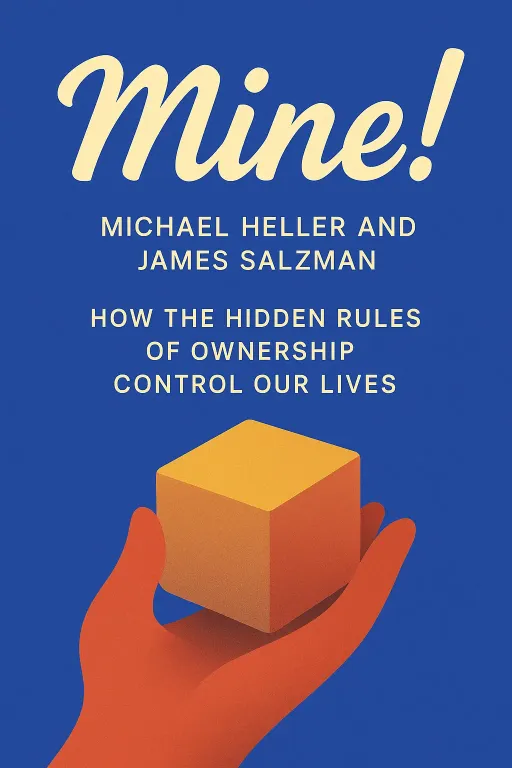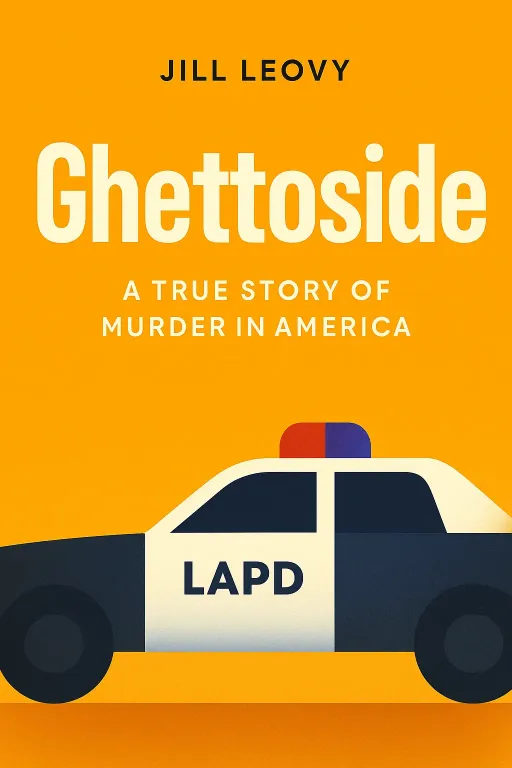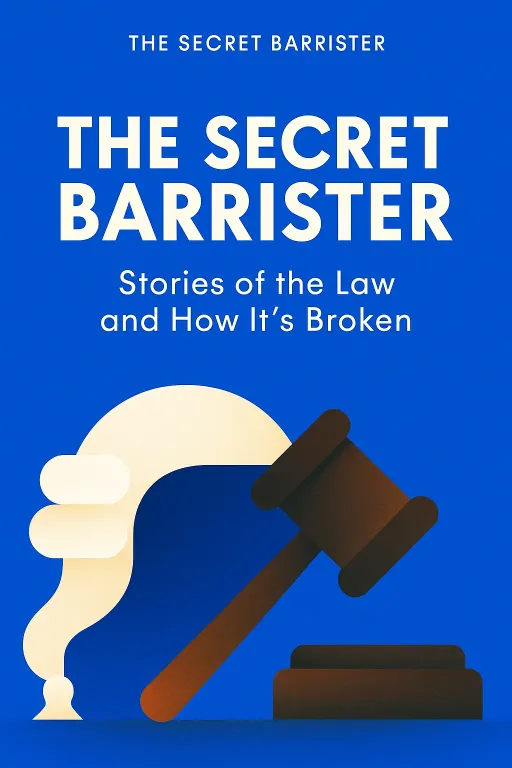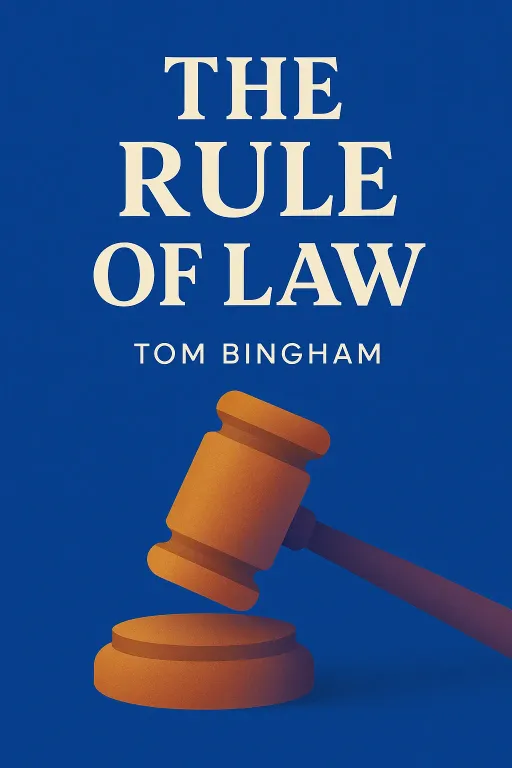
Because I Said So
12 minGolden Hook & Introduction
SECTION
Michael: In a single year, 2006 to be exact, the UK government created over 3,000 new criminal offenses. Kevin: Hold on, 3,000? In one year? That’s eight new ways to become a criminal every single day. I can barely keep track of my passwords, let alone 3,000 new laws. Michael: Exactly. And here’s the truly scary part: sometimes, the people whose entire job is to know the law—the judges—don't even know what it is. Kevin: Come on. That can't be right. That’s like a pilot not knowing how to fly the plane. Michael: It sounds like an exaggeration, but it's the central anxiety in a brilliant, vital book by one of Britain's most celebrated legal minds. Today, we are diving into The Rule of Law by Tom Bingham. Kevin: A top judge writing a book for the general public? That feels rare. Usually, they're writing judgments so dense you need a decoder ring. Michael: That’s what makes Bingham so unique. He wasn't just any judge; he was the only person in history to hold all three of the UK's top judicial offices. We're talking Master of the Rolls, Lord Chief Justice, and Senior Law Lord. He wrote this book, which won the prestigious Orwell Prize, shortly before he passed away in 2010. It feels like a final, urgent message to all of us. Kevin: A warning from the very top. Okay, I'm listening. So where does he start? Michael: He starts with a principle that sounds so simple, so obvious, that you'd think we wouldn't even need to discuss it. The law must be accessible.
The Illusion of Accessibility: Why Even Judges Don't Always Know the Law
SECTION
Kevin: That makes perfect sense. It’s the old saying, right? 'Ignorance of the law is no excuse.' You have to be able to know the rules to follow them. Michael: That's the ideal. But Bingham presents a case that just completely shatters that assumption. It’s a story about a man convicted of tobacco smuggling. Kevin: Okay, sounds straightforward enough. He smuggled, he got caught. Michael: He pleaded guilty and got a community sentence. But then the prosecution went after him for the money he'd evaded in taxes—a confiscation order for over £66,000. The trial judge agreed, ordering him to pay up or face twenty months in prison. Kevin: A pretty hefty penalty. Michael: It was. The man appealed, and the case went to the Court of Appeal, in front of three very senior, very experienced judges. They reviewed all the evidence, heard the arguments, and concluded the trial judge was right. They even drafted their judgment, ready to deliver it the next day. Kevin: So, case closed. He has to pay. Michael: Not quite. On the eve of delivering the judgment, one of the judges, just by chance, stumbled upon something. It turns out the regulations the entire case was built on—the 1992 regulations—had been replaced for tobacco products by a different set of regulations in 2001. Kevin: Wait a minute. You’re saying the entire legal basis for the case was wrong? Michael: Completely wrong. And nobody knew. Not the prosecutor, not the defense lawyer, not the trial judge, and not the three senior judges in the Court of Appeal until the very last second. They were about to uphold a £66,000 penalty, with a threat of prison, based on a law that no longer applied. Kevin: That is absolutely terrifying. If three top judges can get it so wrong, what hope is there for the rest of us? The whole 'ignorance is no excuse' idea falls apart. Michael: It does. And Bingham argues this is a modern crisis. He points to what he calls "legislative hyperactivity." We just create too many laws. Thousands of pages of primary legislation, tens of thousands of pages of secondary rules every year. They're often drafted in this dense, cross-referencing style that’s almost impossible to untangle. Kevin: It’s like the terms and conditions for society, and no one can possibly read them all. Michael: Exactly. One judge, commenting on a new criminal justice act, lamented the end of an age when "elegance and clarity of thought and language were to be found in legislation as a matter of course rather than exception." Kevin: That’s a polite, judicial way of saying the laws are a mess. So, if the law is this inaccessible, this confusing, that's one kind of danger. But what happens when the problem isn't that the law is a mess, but that someone in power just decides to ignore it?
The Line Between Law and Tyranny: Discretion, Power, and the Ghost of King John
SECTION
Michael: And now you've hit on the absolute heart of Bingham's book. That is the razor's edge between a free society and a dictatorship. It's the difference between law and discretion. Kevin: What do you mean by discretion, exactly? It sounds like a good thing, like using your judgment. Michael: It can be. But Bingham is talking about unfettered discretion. Think of it this way: a referee in a football game has discretion to decide if a tackle was a foul. But they can't have the discretion to decide that, for the next five minutes, goals for the home team count as double. That's not applying the rules; it's inventing them. Kevin: Right, one is judgment within a system, the other is just making things up as you go. Michael: Precisely. And this isn't a new problem. Bingham takes us back to the 17th century, to a story called the Five Knights' Case. King Charles I was desperate for money to fund his wars, but Parliament wouldn't give it to him. So, he just invented a 'forced loan' and demanded that his wealthy subjects pay up. Kevin: That doesn't sound very legal. What happened to the people who said no? Michael: Five prominent knights refused to pay. And the King had them arrested and thrown in prison. Kevin: So they went to court, right? They must have had a right to challenge their imprisonment. Michael: They did. They sought a writ of habeas corpus—a foundational legal principle that means 'you must have the body,' forcing the jailer to bring the prisoner to court and justify their detention. But the Crown's response was chilling. They didn't say the knights had committed a crime. They simply stated the knights were being held 'per speciale mandatum domini regis.' Kevin: My Latin is a little rusty. What does that mean? Michael: It means "by the special command of the king." Kevin: Wow. So, the justification for their imprisonment was... 'because I said so.' That's it? Michael: That's it. No crime, no trial, no legal process. Just the raw, arbitrary power of the monarch. It was a direct assault on the spirit of Magna Carta, signed 400 years earlier, which had promised that no free man would be imprisoned "except by the lawful judgment of his equals or by the law of the land." Kevin: This is literally the definition of tyranny. A ruler who is above the law. How did that end? Michael: It caused outrage. Parliament was furious. They saw this as a slide into absolutism. This single event, this act of pure discretion, directly led them to draft one of the most important documents in constitutional history: the Petition of Right of 1628. Kevin: And what did that do? Michael: It forced the King to accept that he was subject to the law. He could not impose taxes without Parliament's consent, he could not imprison subjects without cause, and he could not rule by 'special command.' It was a monumental victory for the rule of law over the rule of a single person. Kevin: So that principle—that the government can't just lock you up without a lawful reason—was hard-won. It feels like the absolute bedrock of a free society. Michael: It is. But as Bingham shows, it's a principle that is constantly being tested. And the ultimate test comes when that society feels it is under an existential threat.
When the Rules Break: Terrorism and the Ultimate Stress Test for the Rule of Law
SECTION
Kevin: You mean in times of war, or after a major terrorist attack? Michael: Precisely. This is where the rubber of the rule of law meets the road of reality. Bingham was writing in the shadow of 9/11 and the subsequent 'war on terror,' and he was deeply troubled. Because in the UK, history started to echo. Kevin: How so? Michael: After the 9/11 attacks, the British government passed a law—the Anti-terrorism, Crime and Security Act of 2001. Part of that law gave the Home Secretary the power to detain foreign nationals suspected of being international terrorists... indefinitely. Without charge, and without trial. Kevin: Indefinitely? Without trial? That sounds an awful lot like the 'special command of the king.' Michael: The parallels are undeniable. The government's argument was that these individuals posed a grave threat to national security, but they couldn't be deported to their home countries because they might face torture there. So, the only option, they argued, was to lock them up in a high-security prison in the UK, Belmarsh, for an indeterminate period. Kevin: So what happened? Did the courts just accept it? Michael: No. The case, known as the Belmarsh Case, went all the way to the highest court in the land, the House of Lords. And in a landmark decision, the judges struck down the law. They said it was a violation of the most fundamental principles of human rights and the rule of law. Kevin: Even in the face of a major national security threat? Michael: Especially then. One of the judges, Lord Hoffmann, gave an opinion that is just electric. He said, "The real threat to the life of the nation... comes not from terrorism but from laws such as these. That is the true measure of what terrorism may achieve." Kevin: Wow. He's saying that if we abandon our own principles to fight our enemies, then our enemies have already won. Michael: That's the essence of it. He argued that throwing away principles like trial by jury and the presumption of innocence is what truly destroys a nation from within. The court ruled that the law was disproportionate and discriminatory, because it only applied to foreigners. A British citizen suspected of the exact same thing couldn't be treated that way. Kevin: So even in the most extreme circumstances, the judges drew a line in the sand and said the basic rules still apply. That's an incredibly powerful statement. Michael: It is. And it shows the rule of law isn't some dusty, academic concept. It's a living, breathing battle that has to be fought over and over again, in every generation.
Synthesis & Takeaways
SECTION
Kevin: It feels like we've gone on a huge journey. We started with the almost comical idea that laws can be so confusing that even judges get them wrong. Then we went back in time to see the fight against a king's tyranny. And we ended up in a modern high-security prison, with the same fundamental question at stake. Michael: And that's the genius of Bingham's book. He connects all these dots and shows they are all part of the same story. The rule of law is this fragile, often invisible, architecture that stops our society from collapsing into chaos or tyranny. It's not a peacetime luxury; it's a non-negotiable requirement for a decent society. Kevin: It’s not just about knowing the rules, like in that tobacco case. It's about having the courage to insist that there are rules, especially for the most powerful, and that those rules apply to everyone, equally. It’s the barrier between a society governed by law and one governed by fear. Michael: Exactly. Bingham closes his book by referencing a famous set of 14th-century frescoes in Siena, Italy, called the Allegory of Good and Bad Government. The painting of Good Government shows a city that is prosperous, orderly, and peaceful—people are trading, building, dancing. The law is supreme. Kevin: And the Allegory of Bad Government? Michael: It's a scene of ruin. The city is crumbling, fields are barren, and the streets are filled with violence. And ruling over it all is a horned figure of Tyranny, with Justice bound at his feet. Bingham's point is that the choice is that stark. It's not a spectrum; it's a fundamental choice between two different worlds. Kevin: That's a powerful image to end on. It makes you realize this isn't just for lawyers and judges. This is about the kind of world we all want to live in. So, what's the one thing our listeners should take away from this? Michael: I think it's to be vigilant. The rule of law erodes slowly, often with good intentions. When you hear leaders talk about the need to 'bend the rules' for security, or to 'fast-track' justice to deal with a crisis, remember the Five Knights and the Belmarsh detainees. As Bingham so powerfully argues, the rule of law is the most precious asset of any free society, and it's up to all of us to protect it. Kevin: A powerful and timely message. Michael: This is Aibrary, signing off.
